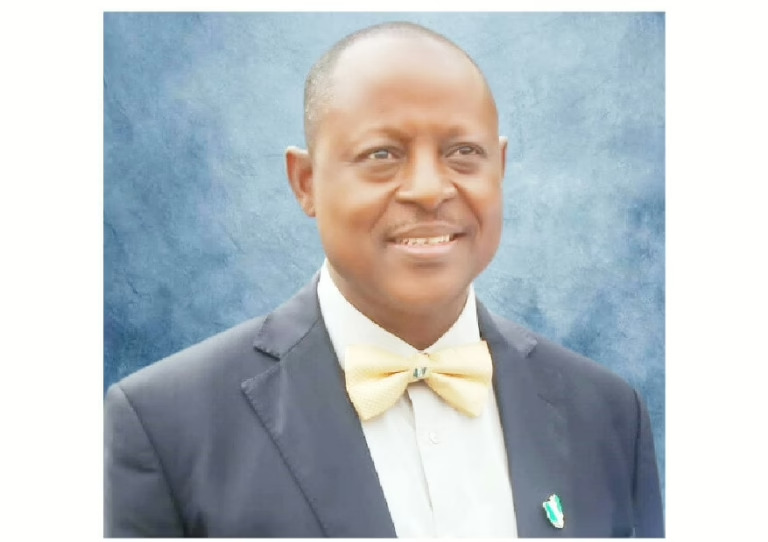According to WHO guidelines, what is the ideal doctor-to-population ratio for Nigeria, and how many doctors would that require given the current population?
The World Health Organization (WHO) sets a benchmark of at least one doctor per 600 individuals to guarantee sufficient primary healthcare coverage. Considering Nigeria’s population exceeds 218 million, meeting this standard would necessitate roughly 363,000 practicing doctors nationwide.
Unfortunately, Nigeria falls drastically short of this benchmark. Latest figures show about 74,543 registered medical doctors; however, this number is inflated as it includes those who have emigrated, retired, or left clinical practice. Realistically, the doctor-to-patient ratio is estimated to be between 1:9,000 and 1:10,000, a figure alarmingly below the WHO recommendation.
How severe is the shortage of medical personnel in Nigerian hospitals, especially within secondary and tertiary care institutions?
The deficit of healthcare workers is not merely significant-it constitutes a full-scale crisis undermining the entire healthcare infrastructure. This shortage is most pronounced in secondary and tertiary hospitals, which are designed to manage complex medical cases but are now overwhelmed.
Institutions such as teaching hospitals and federal medical centers are experiencing a massive loss of skilled professionals. For example, Lagos University Teaching Hospital (LUTH) had to shut down five wards, equating to about 150 beds, in November 2023 due to insufficient doctors and nurses. This closure denies hundreds of patients access to essential medical care daily.
Dr. Amos Magaji, chairman of the House of Representatives Committee on Health, described the ongoing migration of healthcare workers as a “national disgrace.” The Nigerian Medical Association (NMA) warns that if this trend persists, over half of the country’s skilled medical workforce could be lost by 2025.
The crisis is even more acute in rural regions, where healthcare professionals are heavily concentrated in urban centers, leaving rural communities with minimal or no access to qualified medical care.
What impact do the shortages and extended working hours have on doctors’ mental health and overall well-being?
The strain on the remaining doctors is overwhelming and unsustainable. The tragic case of a doctor who died after being on call for 72 consecutive hours highlights the extreme pressures faced by medical professionals. They are frequently compelled to endure excessively long shifts to compensate for the workforce gaps.
Beyond physical exhaustion, many doctors experience moral injury-a psychological burden stemming from their inability to deliver the quality of care they know patients deserve due to systemic inadequacies, lack of equipment, and understaffing. For instance, doctors have resorted to using makeshift solutions such as cardboard boxes as incubators or performing surgeries under candlelight or mobile phone illumination. This fosters deep feelings of helplessness and guilt.
The unfortunate death of Dr. Vwaere Diaso, who perished in a malfunctioning elevator at her residence despite repeated safety complaints, underscores the dangers doctors face beyond their professional duties. Many work in unsafe environments plagued by poor infrastructure and security risks.
One of the main drivers behind the mass departure of doctors, often termed the “Japa Syndrome,” is inadequate compensation. Nigerian doctors earn an average annual salary of about $5,911, starkly contrasted with approximately $316,000 earned by their counterparts in the United States. This enormous wage disparity motivates many to seek better financial prospects abroad.
Additionally, poor working conditions-including long hours, insufficient medical supplies, unreliable infrastructure, and frequent power outages-contribute to burnout and job dissatisfaction. Disputes over salary structures, welfare concerns, and limited career opportunities for new graduates further exacerbate frustrations within the profession.
Widespread insecurity, including kidnappings and assaults, coupled with broader socioeconomic challenges, also compel doctors to look for safer living and working environments for themselves and their families.
What dangers does the current shortage of doctors pose to patient safety and healthcare quality?
The link between insufficient medical personnel and compromised patient safety is stark and alarming. Nigeria accounts for the highest number of maternal deaths globally, representing 28.5% (82,000 deaths) of worldwide maternal fatalities in 2020. Infant mortality remains critically high at 72 deaths per 1,000 live births. These statistics are likely to deteriorate further if the healthcare workforce continues to dwindle.
Understaffing significantly increases the risk of medical errors. Research on patient safety culture in Nigerian hospitals reveals that issues such as inadequate staffing, punitive responses to errors, and infrequent incident reporting are prevalent, directly correlating with higher patient harm. Patients endure longer waiting times, misdiagnoses, and substandard care.
The loss of experienced healthcare professionals undermines efforts to combat infectious diseases, reduce maternal and child mortality, and manage non-communicable diseases, pushing the healthcare system toward potential collapse.
Those with financial means often seek treatment abroad, contributing to over $1 billion spent on medical tourism in 2022 alone. This outflow of resources weakens the national economy and deepens poverty for many families. Meanwhile, the majority who cannot afford overseas care are left vulnerable, relying on chance or facing fatal outcomes.
What concrete measures has the government implemented to address the shortage of medical personnel, and how successful have these been?
Instead of tackling the root causes, the government has proposed measures such as a bill requiring medical graduates to complete five years of mandatory service before full licensure. This proposal has met strong opposition from medical bodies, who argue it is coercive and fails to address why doctors are leaving in the first place.
Ongoing, often tense negotiations between the government and medical associations focus on welfare issues, including the withdrawal of a contentious circular on medical salaries and the introduction of a revised pay structure. Despite these discussions, lasting and effective solutions remain elusive.
How effective are current recruitment and retention efforts in curbing the “Japa Syndrome” among Nigerian doctors?
Present strategies have largely failed to stem the tide of doctor emigration. The fundamental push factors-low pay, poor working conditions, and inadequate infrastructure-remain unaddressed.
Successful retention requires a comprehensive approach beyond recruitment alone. Lessons from other Nigerian sectors suggest the importance of competitive salary packages (including health benefits and performance incentives), fostering a positive workplace culture with strong leadership, clear career progression paths, opportunities for continuous professional development, and flexible work arrangements where feasible.
Until healthcare authorities adopt such a holistic and strategic framework to retain their workforce, the exodus of medical professionals will persist unabated.
What initiatives are medical associations undertaking to advocate for fair manpower distribution and improved working conditions?
Organizations such as the MDCAN, NMA, and Nigerian Association of Resident Doctors (NARD) are actively engaged in multiple advocacy efforts. They negotiate persistently with government bodies to enforce binding agreements on salaries and workplace improvements. These groups also leverage data and statistics to highlight the severity of the crisis.
Through media outreach and public engagement, they raise awareness about the deteriorating state of healthcare, using public pressure as a catalyst for policy change.
Rather than supporting compulsory service mandates, these associations push for addressing the underlying causes of brain drain, aiming to create an environment where doctors choose to remain and thrive.
Despite challenges, there is growing emphasis on supporting the mental health and well-being of medical professionals, advocating for systems that provide psychological and emotional support.
What is your perspective on the path forward to resolve Nigeria’s healthcare manpower crisis and other urgent system challenges?
The shortage of healthcare workers in Nigeria represents a critical emergency demanding immediate, visionary, and committed leadership. The solutions are well-established and must be implemented without delay:
- Invest in Workforce Welfare: Introduce competitive salaries and promptly address all outstanding welfare issues.
- Modernize Healthcare Infrastructure: Upgrade hospitals, ensure reliable electricity and water supply, and provide essential medical equipment and medications.
- Reduce Workload and Enhance Security: Hire additional staff, guarantee job stability, and protect healthcare workers from violence and insecurity.
- Adopt Evidence-Based Retention Strategies: Emulate corporate best practices focusing on career development, positive organizational culture, and leadership training.
- Engage the Diaspora: Develop smart policies to involve Nigerian doctors abroad in knowledge exchange, training, and investment, viewing them as valuable assets rather than adversaries.
Without decisive and comprehensive action, the collapse of Nigeria’s healthcare system is inevitable, with catastrophic consequences for the nation’s health and future. The moment for talk has passed; urgent action is imperative.

















